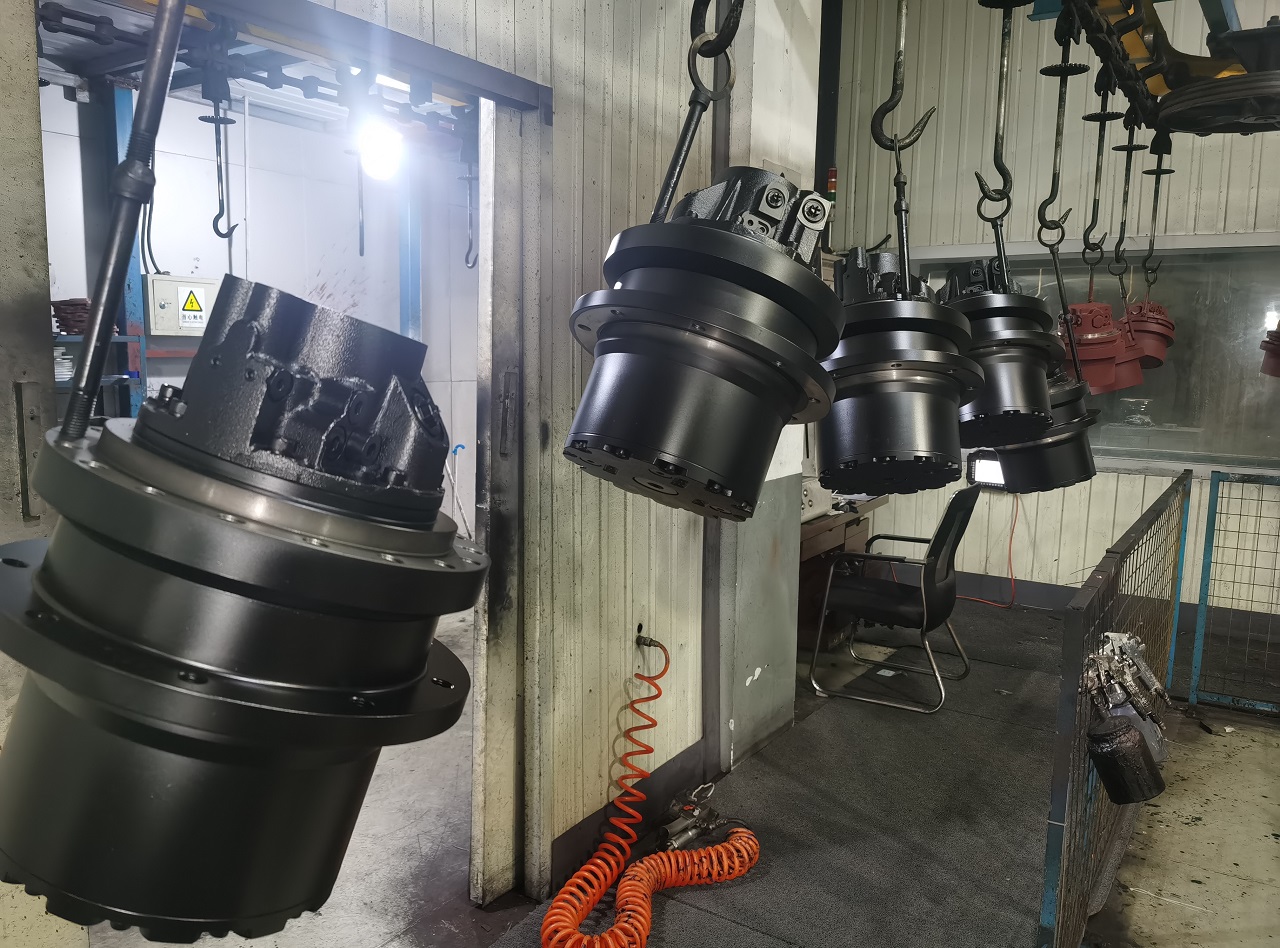EXPLORING THE LIMITATIONS AND ADVANTAGES OF HYDRAULIC TRAVEL MOTORS
2023-03-09
Hydraulic travel motors are a crucial component in
the operation of many mechanisms and machines. They have become an integral
part of our industrial and engineering infrastructure, yet there is still much
to be learned about how they work and their capabilities. In this blog post, we
will explore the limitations and advantages of hydraulic travel motors.
HOW IT WORKS
Hydraulic travel motors are used to convert
hydraulic energy into mechanical force or motion. This is done using a
combination of pistons, cylinders, seals, valves, and other components that are
connected in a specific way. The most common type is the axial piston motor
which works by converting the pressure from a hydraulic system into rotational
movement. This is accomplished by having pistons that are driven by either a
fixed or variable displacement pump. When pressure is applied to one side of
the piston, it causes the motor to rotate in one direction while decreasing
pressure on the opposite side causes it to rotate in the other direction.
LIMITATIONS
Despite its broad range of applications, hydraulic
travel motors do have some inherent limitations when compared to electric
motors. For starters, they are not as efficient due to losses caused by
friction between moving parts and heat generated by converting pressure into
motion. Additionally, they require more maintenance as wear and tear on
components can happen over time leading to increased operating costs over their
lifetime. Finally, they can be quite loud when operating as there is no
insulation between parts which can cause vibrations that produce noise
pollution in certain environments.
ADVANTAGES
On the plus side, hydraulic travel motors offer
better torque than electric motors at lower speeds making them ideal for
heavy-duty applications such as construction equipment or large machinery where
power output is key. They also provide greater control than electric motors as
changing pressure levels allows for precise regulation of speed and torque without
needing any external controls like switches or relays found on electric
circuits. Finally, these types of motors are usually cheaper than electric
alternatives due to their simpler construction making them great for budget
conscious projects like agricultural machinery or industrial conveyor systems
where cost savings may play an important role in design decisions.
As you can see, hydraulic travel motors offer both
advantages and disadvantages when compared with electric counterparts depending
on your application requirements. Although they lack some efficiency when
compared to electrical options they provide greater control over speed and
torque while also being more cost effective overall making them ideal for
certain tasks such as heavy-duty hauling equipment or large-scale industrial
production lines where power output needs to be maximized without breaking the
bank. If you’re considering using a hydraulic motor for your next project then
take some time to research all your options so you can make an informed
decision that’s best suited for your needs.

If you're in the market for a reliable, durable,
and powerful hydraulic travel motor, look no further than WEITAI. Their high
quality motors are designed to withstand even the toughest conditions while
providing robust performance. With years of experience in the industry and a
proven track record of customer satisfaction, there's no better option for your
next hydraulic travel motor. Save time and money by investing in a product that
is built to last and can be counted on in any situation. Don't settle for
anything less – message WEITAI for your next hydraulic travel motor.
Alisa Sergienko
WEITAI Marketing Department